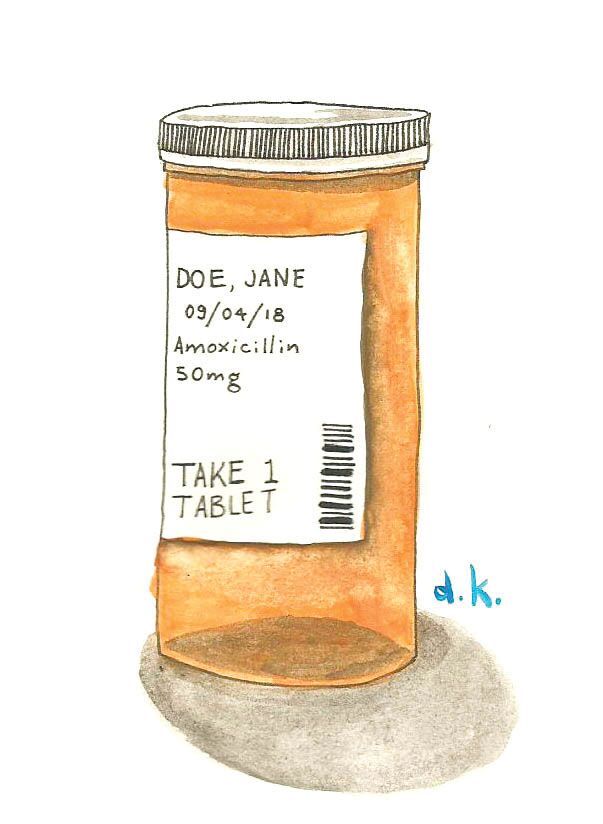
[dropcap]R[/dropcap]eporting on the opioid crisis currently afflicting the western world continues to rise, with millions now grappling with an addiction to prescription pain killers. In the wake of this coverage, Netflix’s new documentary Take Your Pills turns its attention to the ADHD medication Adderall and its abuse by people who haven’t even been diagnosed with the disorder.
The style of the documentary can only be described as incredibly flashy. Effects, graphics and cartoons bounce around the screen at a distracting rate and the templates of borders used for featured videos seem experimental, more suited for a music video rather than a documentary. Within ten minutes, this proves to be an irritation as the documentary jerks from one cutscene to another. This style may have been attempted to perhaps mirror the effect your brain has on Adderall or perhaps how a person with ADHD feels – it’s not exactly clear.
The first half of the educational film is repetitive as we watch person after person praise the medication to the high heavens. Testimonials of how one girl wouldn’t have gotten her 4.0 GPA if it weren’t for Adderall, an NFL player who thanks his success to the stimulant drug, a financial analyst who states that he takes Adderall to merely keep up in his cut-throat office, they all read like an advertisement. One person describes Adderall side effects include “being awesome at everything”. One is tempted to go on the dark web and purchase a few bottles of the pills themselves. Or even book a psychiatric appointment and fake their way to a nice, gift wrapped diagnosis and prescription. They make it seem so easy.
The latter part of the Netflix series touches upon the dangers of using the drug, such as an increased temper and one side comment about liver problems later in life that isn’t explained in further detail. The brief mentions of the side effects come across like the tiny terms and conditions font found in the We Buy Gold ads that beset television screens during the economic crisis. There is no real conclusion from many of the interviewees, who either hope they won’t need Adderall once leaving education and entering the workplace or they’ll just continue to use it.
Another worrying problem is the blatant information many of the interviewees spread which doesn’t go contested. Both the artist who gave the documentary its namesake, only referred to as Jasper, and a psychotherapist talk about how Adderall is merely a smaller dosage of the illegal and highly addictive crystal meth. They are not describing Adderall, which is an amphetamine, but the methylphenidate Ritalin which can also treat ADHD. The film even explained this earlier on but decides to ignore the truth in favour of a good soundbite from sources posed to be reliable.
This documentary fails to properly explore the full story behind Adderall, and we are led to believe that the main abusers of Adderall are many who don’t live with the condition ADHD. Instead, it is described as a super drug that is going to give you a leg up against all your peers. The people interviewed with ADHD never talk about how Adderall has helped treat their symptoms or what it’s like to operate with the attention disorder without the use of medication. It also doesn’t explain the dangers of acquiring these “study pills” illegally and without a prescription.
“Before I was prescribed anything I had to have a thorough check of my heart to make sure I had no underlying problems” says Callum Flynn, an adult who has been diagnosed with ADHD. “It can put such a strain on your heart that if you have a small, unnoticed problem, it can suddenly become deadly.”
“I had near constant heart palpitations on [Adderall], that’s how bad it was and while that was more manageable for me than my ADHD, if people don’t know all this and jump into taking these meds just like any other prescription, it could really damage them”.
There has been very little research into the abuse of “smart drugs” in Ireland, the only report conducted was a joint UK and Ireland survey in 2014 by the London School of Economics and Kings College London on college students. It found that 9% of students had taken stimulant enhancers such as Adderall, Ritalin and Modafinal. With UCD being the only university in Ireland to have a policy against these type of drugs, it’s still a problem that has gone relatively undiscussed.
Which is why Take Your Pills is such a let-down, they had the opportunity to educate and properly inform citizens the dangers of Adderall abuse, to start an informed conversation. Instead they opted for lazy journalism and made the decision that the look of the finished product was more important than the content.



